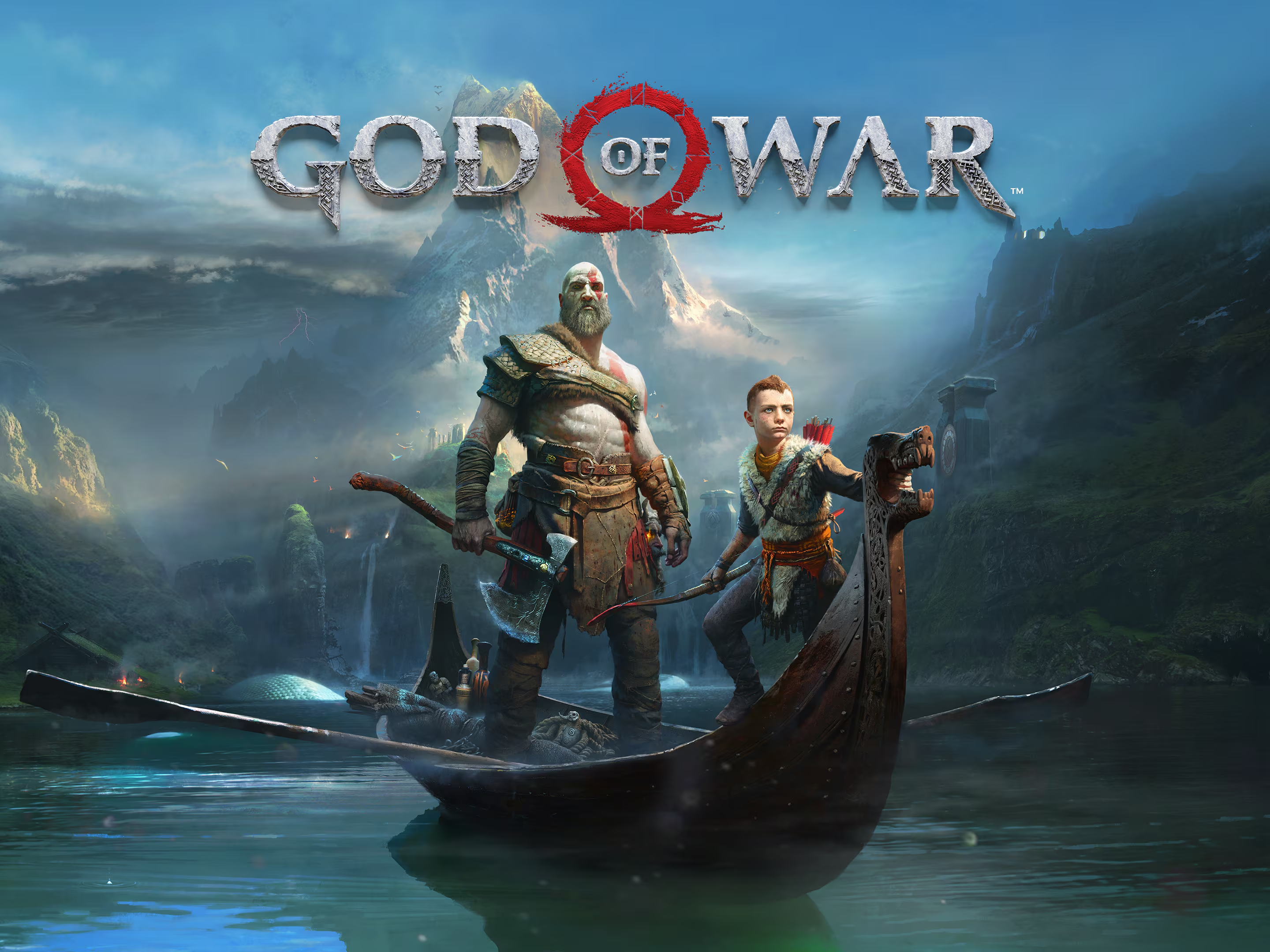God of War: Chains of Olympus
The God of War franchise’s success is largely based on the spectacle it provides. The first three main titles boasted huge environments that contained titans, monsters, and gods fighting battles, while the protagonist, Kratos, was dismembering his enemies and shouting in fury. But they also tried to add to the combat system with each installment, either by adding new weapons and spells or by increasing the number of enemies that require unique tactics to be defeated. Chains of Olympus marks Studio Santa Monica’s first attempt, in partnership with Ready Dawn Studios, to bring the franchise to a portable system. However, contrary to what one would imagine, instead of narrowing the scope of the action to fit the PSP’s modest screen, it was the combat that was simplified.
Chains of Olympus’ plot takes place years before the events of the first game and is intended to solidify Kratos’ confidence in the Gods of Olympus. The story begins with the Spartan being sent to defend the Attic coast from Persian invaders. After the battle, Kratos watches the sun fall from the sky and the world become shrouded in darkness. Athena, then, instructs him to track down Helios, the Sun God, and save humanity.
The story starts out weak. The battle for Attica sounds like a random event: Kratos has experienced thousands of wars, leaving the impression that Attica was just one of them – neither the most exciting, nor the most difficult or relevant. By the time Greece is overwhelmed by darkness, the story starts to become more compelling with its mysteries: the disappearance of the Helios is the first one to compels us, and later in the game, the protagonist begins to see the ghost of his daughter.
But it is only at the climax that the story of Chains of Olympus gains any resonance: it juxtaposes the protagonist’s eternal desire to bring back his family with his destructive nature. The consequence is that Kratos’ tragic fate becomes clear to himself: the Spartan is bound to be a hero, but also a monster.
His journey in Chains of Olympus is a brief one. Developers have managed to keep the sheer scale of the environments intact, featuring locations that impress with their scope even on a portable system: Tartarus, with its many titans chained in gigantic mountains, is a great example. However, as much as the set pieces can impress the player, they are over too soon, as the main campaign can be finished in just four hours.
A much graver mistake, however, is the unjustified simplification of the combat system. The action in God of War has always simple, based on a few combos that blend short and long range attacks with the ability to grab enemies and use magic. Consequently, the point of the combat was the brutality of the animations and the diversity of enemies, as some of them require a small change in strategy to achieve victory. For this reason, each game always features new spells, new weapons, and new enemies. Variety is the key to success. Chains of Olympus fails in this regard and even tries to hide the fact that it brings nothing new to table by changing the appearance of old enemies with bland pallet-swaps. But a blue Medusa remains a Medusa; and if she no longer petrifies her enemies, it only makes her a less dangerous one.
Besides relying heavily on palette swaps, the developers also excluded mechanics that already worked, such as the “Rage of Gods” ability that increased Kratos’s strength after many successful battles. The amount of secondary weapons has decreased to just one – “The Gauntlet of Zeus” – and even the challenges unlocked at the end of the campaign are reduced from the usual ten to just five
God of War: Chains of Olympus succeeds in maintaining the grand scope of the adventure intact, but its combat system is severely lacking. God of War, as it is structured, is a series that always needs to be bigger with each title if it wants to remain relevant: bringing more enemies, more weapons, more impressive set pieces. For unknown reasons, Chains of Olympus offers the opposite. It offers less.
October 02, 2019.
Review originally published in Portuguese on August 08, 2014.
Ready at Dawn and SCE Santa Monica Studio.
Ru Weerasuriya.
Cory Barlog, Marianne Krawczyk and Ru Weerasuriya.
Gerard K. Marino
4 hours.
PS3.
























